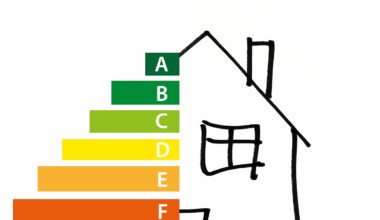How to Create Effective Budget Reports for Your Business
Creating effective budget reports is essential for any business aiming to improve its financial management. Budget reports help businesses track their income, expenses, and overall financial health. To craft an efficient report, start by outlining your goals. Clearly define why you need the budget report, what information it should include, and whom it’s designed for. When determining the structure, consider what categories to include. Commonly, you should categorize expenses into fixed and variable costs. Also, consider timeframes for data representation, whether monthly, quarterly, or annually. This decision affects how stakeholders understand financial trends over time. For more clarity, use visuals such as graphs and pie charts to illustrate budget distributions. Include comparative data by analyzing previous budget performances against the current budget. Such comparisons create insight into variations and enhance strategic planning. Lastly, ensure that all figures are accurate and double-check mathematical calculations to prevent errors. Having a reliable data source is critical for attainability and decision-making. Revisit your reports regularly to update projections based on real-time financial data.
After compiling the necessary data, create a concise executive summary that outlines the report’s key findings. This section should offer a snapshot of the primary financial health indicators, summarizing revenues, expenses, and notable variances. An effective executive summary provides context to the detailed data that follows. Make sure that it fits the audience’s knowledge level. If the report is shared with non-financial professionals, use plain language and avoid jargon. Utilize bullet points to improve readability and emphasize important figures. Additionally, consider incorporating a narrative element that explains trends, influencing factors, or unanticipated outcomes. This could include information about market fluctuations or internal operational changes affecting finances. Remember that a budget report is not just about presenting numbers; it’s about telling a story that persuades stakeholders to take action based on insight. Furthermore, accountability is crucial in budget reporting. Designate specific team members who will be responsible for overseeing individual budget categories and their adherence to spending limits. By holding these individuals accountable, your business can prevent overspending and allocate resources more effectively.
Essential Components of Excellent Budget Reports
When developing effective budget reports, several essential components must be incorporated for maximum impact. First, introduce a section detailing the methodology used in data collection and projections. Transparency regarding how figures are derived enhances credibility and invites constructive feedback. Secondly, ensure you detail line-item budgets, which break down revenue sources and expense categories at a granular level. Stakeholders appreciate knowing exactly where funds are allocated. Clear visuals aligned with this data will aid in understanding complex financial details. Next, it’s particularly beneficial to focus on variances in budget versus actuals. Analyzing any discrepancies highlights areas that may require management’s attention or strategic adjustment. By providing explanations for these variances, you promote proactive management and future planning. Additionally, a section discussing historical data can help contextualize current numbers, encouraging a forward-looking approach to budget preparation. Lastly, incorporate recommendations for future actions based on the analysis of budget figures. This empowers decision-makers with informed strategies, ensuring that budget processes are continuously refined and aligned with organizational goals.
After finalizing the report, consider ways to present it effectively. The method of delivery should be chosen based on the audience’s preferences and the report’s complexity. For a detailed analysis, a presentation format might work best, allowing you to highlight key areas while engaging your audience through questions. If distributing in written form, consider using a digital format that allows for easy navigation through sections. Hyperlinks within the document can direct stakeholders to relevant supporting documents, enhancing the depth of understanding. Additionally, offering a printed version for high-level executives could be beneficial since some may prefer tactile formats. Prepare for discussions that will arise from the presented data. Stakeholders may have inquiries related to assumptions made, methodologies employed, or recommendations suggested. Build time into these discussions to ensure clarity and foster collaboration in making financial decisions. A dialogue surrounding the report’s conclusions will invite diverse perspectives and innovative ideas. After concluding discussions, document feedback received and consider ways to incorporate inputs into future budget planning.
Utilizing Technology for Better Budget Reporting
Technological advancements have significantly transformed how businesses approach budget reporting. Leveraging financial software can streamline the creation of detailed budget reports, facilitating real-time updates and data analysis. Popular software such as QuickBooks and Microsoft Excel offer functionalities that can automate calculations, reducing the risk of human error. Additionally, cloud-based services allow for seamless collaboration across teams, meaning that all stakeholders can access and modify budget reports from any location. This enhances inter-departmental communication and ensures that everyone works with the latest data. Integrating business intelligence tools can further enhance reporting by providing predictive analytics that forecast future budgetary needs based on historical trends. These insights help organizations make more informed financial forecasts and identify potential challenges ahead of time. Finally, consider utilizing dashboards that represent financial data visually. Dashboards often synthesize information into single views that highlight relevant metrics efficiently. This enables a quick understanding of financial status, trends, and key performance indicators, allowing stakeholders to make informed decisions in real-time, enhancing overall financial management and responsiveness.
A crucial aspect of enhancing your budget reports is seeking feedback and making iterative improvements. Encourage peers and stakeholders to share their thoughts on the clarity and utility of budget reports. Constructive criticism can shed light on aspects that may require additional explanation or adjustments. By regularly iterating your budget report based on feedback, you increase its relevance and usability. Consider implementing a standardized template for consistency in reporting across departments. This approach enhances familiarity and streamlines processes when compiling and presenting data company-wide. In addition, educate employees about financial literacy to improve their understanding of budget reports. Offering training sessions enhances everyone’s capacity to engage meaningfully with budget documents. Furthermore, as organizations evolve, financial reporting practices must adapt. Whether incorporating changes due to regulatory requirements or internal shifts, ensure adjustments are reflected in your budget reports promptly. By remaining agile and responsive to changes, you reinforce the value of effective budget reporting as an essential component of successful financial management. Ultimately, your ability to adapt and innovate will drive the effectiveness of your budget reports.
Conclusion and Next Steps
Concluding a discussion on effective budget reports requires a focus on ongoing development and future initiatives. Regularly review your budget reporting processes to identify opportunities for refinement and enhancement. As you adopt new technologies, such as AI-driven analytics and data visualization tools, consider how these tools can elevate your reporting to the next level. It’s vital to keep abreast of industry practices and trends surrounding financial reporting. Engaging in forums, webinars, and workshops can provide fresh perspectives and new methodologies. Additionally, ensure that everyone involved in the budgeting process recognizes the importance of their contributions. Foster a culture that values accountability and transparency in financial management, as these traits will undoubtedly lead to more accurate and effective budget reports. Encourage an atmosphere of open dialogue, where employees feel comfortable offering suggestions for improving both budgeting strategies and reporting practices. This fosters collaborative innovation, ensuring your business becomes adept at navigating complex financial landscapes. By following these guidelines, you can create effective budget reports that not only serve operational needs but also empower strategic decision-making.
In summary, creating effective budget reports entails rigorous planning, continuous improvement, and leveraging technology. It’s essential for businesses to recognize that the goal of these reports transcends mere documentation of numbers; they should ultimately serve as strategic tools that drive informed decisions. As you establish a clear reporting framework that addresses both data accuracy and relevance, you set your organization up for financial success. Regularly updating processes based on technological advancements and stakeholder feedback will yield the most valuable insights. Finance teams should not shy away from collaboration, as collective input can often lead to innovative financial strategies and improved budget management. Emphasize the importance of accountability and transparency within your finance operations, fostering a culture that prioritizes education and awareness. These efforts will empower your team and elevate your organization towards achieving financial objectives. Through dedication and adaptation, your budget reports can evolve to meet the demands of changing business environments and achieve the intended impact. Your pursuit of excellence in budget reporting will lay the foundation for sound financial stewardship and robust decision-making in the future.


